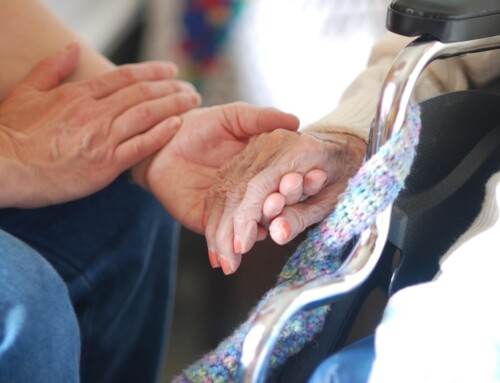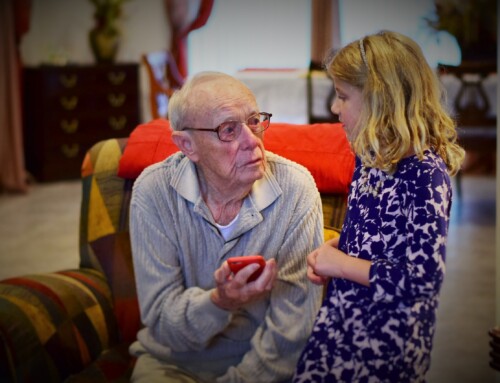Dementia is an encompassing term for a series of disorders that primarily impact older individuals’ cognitive abilities and memory. It results from nerve cell death or functional failure in the brain. Those living with these disorders often exhibit dementia symptoms such as memory loss, irritability, personality swings, and depression. It can be upsetting and challenging to be a caretaker for a dementia patient, especially someone who you love. That is why we are providing this information – to help you understand and recognize dementia behaviors and symptoms and provide recommendations to manage through them.

Difficulty with Communication: Dementia impacts and deteriorates communication skills and abilities. Depending on how quickly dementia progresses, a patient may be capable of sharing their preferences and desires – be patient and allow them to get their thoughts out. For those dementia patients in later stages, there may be significant difficulty in communicating. They may struggle to remember specific words, fail to organize their thought process, or begin to rely on nonverbal communication. Caregivers or loved ones should comfort the patient and be optimistic and measured when carrying on a conversation. Use less complex words or phrases, and ask only one question at a time. Don’t pepper them with questions if they seem to be having difficulty answering.
Aggressive Behavior: Dementia patients may exhibit aggression or irritability when they are scared, confused, or frustrated. Many situations are likely to trigger these reactions, such as sudden loud noises, asking “why” questions, feeling their caregiver is annoyed, being corrected, scolded, or argued with, or attempting challenging tasks. Caregivers should try to understand their feelings, comforting them by holding their hands or rubbing their back. Remember – some people don’t like being touched when they are upset, so instead, use calm words to reassure them. Be sure to give them the space they need until they calm down.
Wandering Away: Dementia can cause patients to wander away and walk incoherently. They may wander indoors or outdoors, although outdoor wandering is far more concerning. Thie behavior may be triggered by disorientation or a lapse in memory but may also indicate that they are restless, bored, or needing stimulation. Wandering can mask loneliness or fear or suggest that they are hungry or thirsty. Remind your loved ones that they are in the right place and safe with you. Give them a reassuring hug. If they begin to wander and it seems to calm them, simply supervise them and allow them to walk in a safe area.
Dementia symptoms vary widely from patient to patient. One person may be happy but confused, while another is angry all the time. These symptoms and situations are often the hardest on the caregivers. If you are caring for a dementia patient at home, you may have realized that it is too much for you to handle any longer – but this often inspires guilt. It is essential to know that dementia is a complex disease and requires time, attention, and patience. It may be time to consider professional help.
At A Banyan Residence in The Villages, we are well aware that every memory care patient has different needs at different times. You can have peace of mind knowing that your loved one is safe and cared for. Call today for more information or to schedule a tour.







